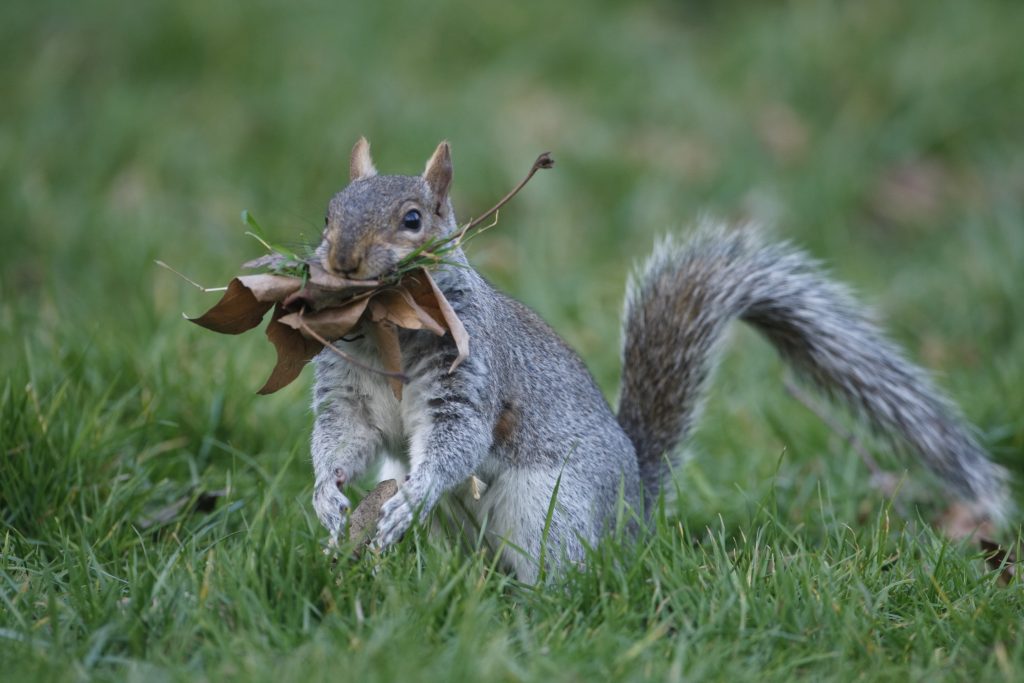Squirrels are industrious creatures that seem to work non-stop. You may have seen squirrels bury their nuts in the ground or carry nesting materials in their mouths. These are busy creatures that build several nests per year. The nest-building process is remarkable, but it is only acceptable outside the home. Squirrels will happily work their way into your house if they can. For all your squirrel removal needs, call Squirrel Control.
Squirrels are rodents that have adapted very well to city living. With over 200 species of squirrels out there, these animals are common in cities and forests across the globe. Squirrels mainly feed on things like fruits, vegetables, seeds, and nuts, but they also enjoy caterpillars, bugs, eggs, and mushrooms. In the city, squirrels like to take advantage of bird feeders and garbage cans. Contrary to popular belief, squirrels do not hibernate. They do, however, build nests to sleep in during the winter. Female squirrels each build several nests in the spring and summer to raise their young.
Squirrel nests are rather sophisticated as they are built specifically to withstand strong winds and to be insulated from the winter’s cold. Squirrels first make their nests by weaving together live green twigs and grasses, then layering damp leaves and moss on top. They then construct an outer layer out of twigs and vines, then continue to fill the nest in with additional materials. Nests are typically 6 to 8 inches wide and take about 3 and a half hours to make. Squirrels work hard to ensure that their nests are well constructed, chewing, breaking, crushing, and manipulating their components for the best result.
Squirrels typically build their nests in tree canopies and hollowed trunks, but it’s not uncommon for these animals to build them in attics and other raised structures. Squirrels are attracted to the warmth of our homes and their proximity to food and water. To get inside, they look for openings such as roof vents and weakened soffits, then gnaw their way in. If there is a nest in your home, you may be able to hear squealing, chattering, and thumping sounds coming from upstairs in the attic. Squirrel nests are problematic indoors because they cause odour problems and the rodents risk causing power failures or fire as they like to chew on electrical wires.
It is fascinating how well squirrel nests are built, but they are better left outside. To protect your home from a squirrel invasion, have a good look at your roof and repair any gaps or cracks you find. Check your soffits and drip edges especially and cap your vents with a strong steel mesh. The professionals at Squirrel Control would be happy to help you pest-proof your home. We’ll block off every potential entry-point with an impenetrable mesh and offer you a 2-year warranty. Call Squirrel Control today for quality squirrel-removal and pest-proofing: 647-496-0815.
